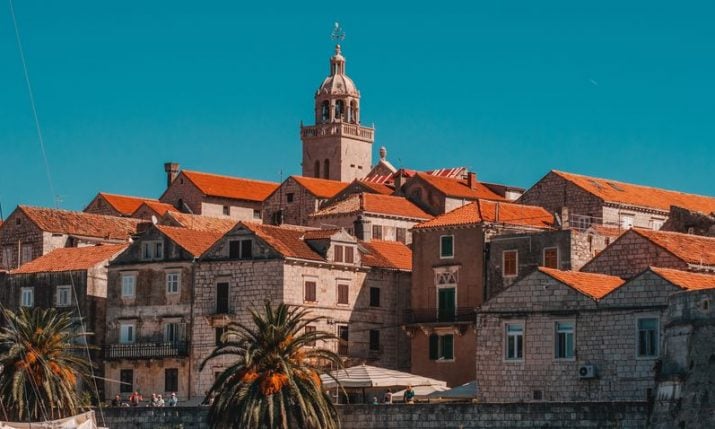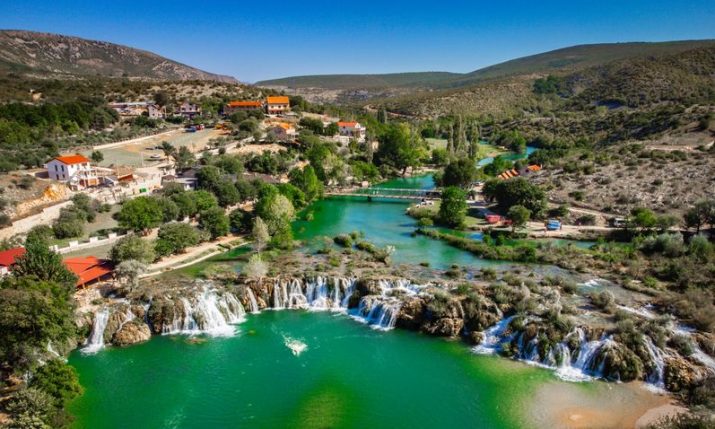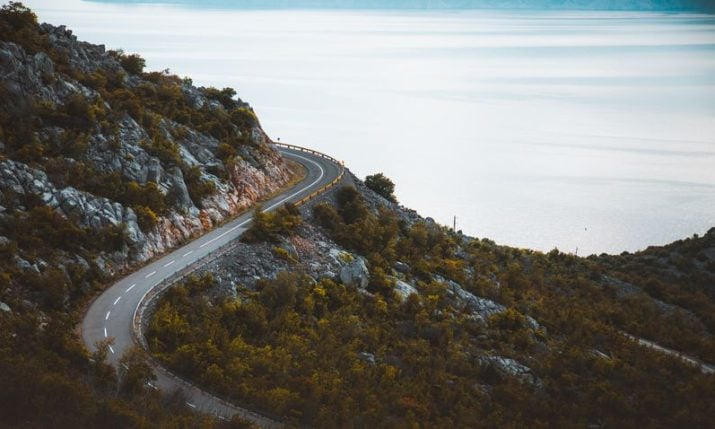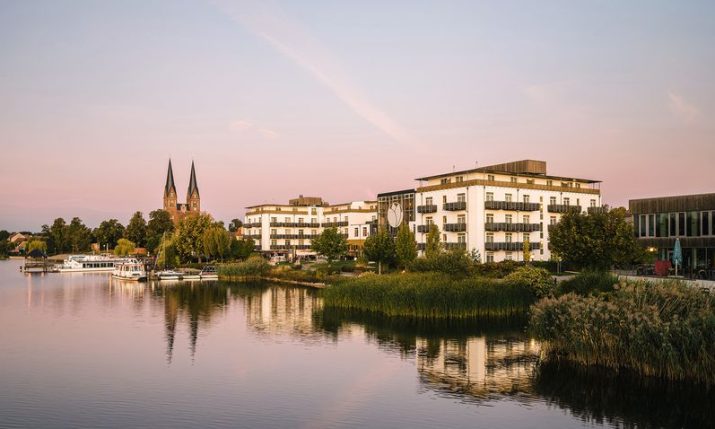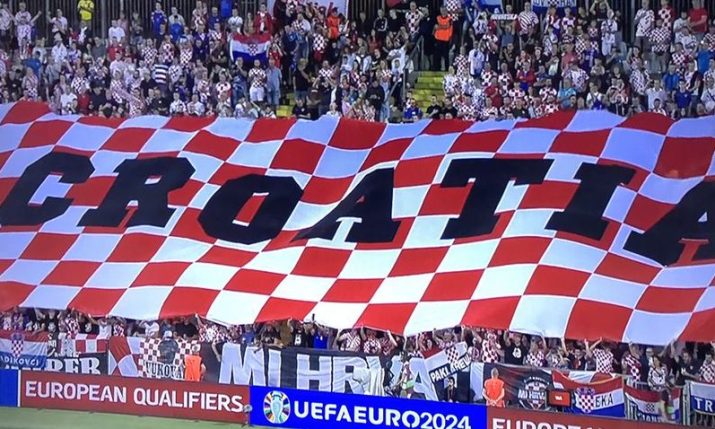Why I Left London to Live in Croatia?
- by croatiaweek
- in Latest

Fiction writer and an anthropologist Andrea Pisac was born in Croatia. Just over 10 years ago she packed up from Zagreb and moved to London where she finished a PhD in anthropology. To the amazement of her circle of friends she returned to live in Zagreb recently. But why? She explains…
When I decided to leave London and come back to Croatia, people stared at me in disbelief. ‘Why would you leave the most exciting city in the world?’ they pressed me.
Why would I exchange an established academic career and a UK salary for the Croatian quagmire? And at the time when 15,000 young Croats move abroad each year in search for work and better living conditions.
In the past two years I’ve done little else but try to satisfy friends with a plausible answer. Often to no avail. Even when I finish with the argument that ‘everyone has their own path to follow’, I am looked at as a crazy person.
Someone who had everything going for them and flippantly gave it up.
So ask me again. I promise this time I won’t try to prove myself right. Instead I’ll borrow the words of a fictional Indian chef Hassan Kadam, who flees his country and, via London, settles under the French sun.
‘And why exactly are you leaving London?’ asks the customs officer.
‘I find that in England, vegetables have no soul, no life…’ Hassan replies.
The Hundred-Foot Journey film.
Help! I don’t have a Croatian pedigree line
Croatia is undeniably a difficult country to prosper in. More so if you’re not politically connected or if your ideas fall outside the lines of how things usually get done. Old socialist mindsets, mixed with close-knit mentality, inhibit people who see and do things differently. In a word, Croatia is a place where it’s more important who you know than what you know.
So for example, when you’re introduced to someone new, they’ll often ask you ‘whose are you’. What they want to know is your family background, your pedigree and connections you may have. In London, in a similar situation you’ll be asked ‘what do you do’. It’s equally limiting, but at least if you’re good at what you do in London, you can rise above the pedigree certificate. Your can create your own individual worth.
So which would you choose? The power (and limitations) of belonging to a tribe or the power (and limitations) of being your own person?
Help! I’ll end up in a London phone booth
As a student of literature in Zagreb, I got a C for my paper on Kurt Vonnegut’s Cat’s Cradle. The teacher told me to put aside my creative thinking and follow the rules of ‘good academic writing’. I was by then a published fiction writer – what a drag! This ridiculous comment filled me with so much positive energy to immediately start packing for London. I didn’t realize it then, but it was hostile conditions that boosted my creativity and entrepreneurial spirit. I would do anything to succeed.
London made me spread my wings. Each project I applied for – artistic or academic – was accepted and supported. I flew ever so high, lulled on soft and favourable air currents. I realized – Croatia made me do things despite the stormy weather; in England I prospered because of calm weather. There is no way around this fact: living conditions in London, that so many Croats are seeking, are better. But there’s a point when calm becomes dead calm.
And the point is this.
I could continue my academic research only if my subject and approach fit the grant-giving bodies. A literary agent would take me on only if I made my novel ‘bloodier, darker and more Balkan’ to support the stereotype of Croatia as some Wild East backwater. My bank account would cushion me from ending up homeless only if I coloured within those lines. And London is a place which gives plenty but takes even more: sometimes over night. If you don’t agree to its terms and conditions, you can easily end up like a friend of mine who slept in a phone booth because she couldn’t pay the rent.
That’s the dead calm. When you give piece by piece of yourself so that everything can come easy.
Back to Croatia: the turn of the screw
Before I decided to bid London goodbye, I spent more time in Zagreb working on an academic project. I was being reacquainted with the city I still held a grudge against. One evening I had dinner at a friend’s house. Eight of us sat around the table, giggling and sipping the finest of Croatian red wine. We polished off prosciutto and Pag cheese for starters, and fillet steak as the main course. Then the jokes and complaints about how Croatia sucks kicked off.
I looked at the table and at the remains of our gourmet feast and asked:
‘How many of you are actually employed?’
There was silence. People glimpsed at each other as if double-checking the count. Only one person raised their hand. So there we were, sitting in a cozy, modernly furnished house, gobbling luxury food, guzzling extra fine wine, living the shitty Croatian life.
Did that one person with a job pay for it all? Of course not. Everything we had for that dinner were gifts from family and friends – the pedigree line.
This is what I learned that night. There will always be lines that keep our colours from spilling out. In Croatia, the colouring area is much smaller than in London, but crossing the line in London costs much more, if not everything. When you muster the courage to splash your paint all over the place, there will be a safety net in Croatia to take you in and cook you a slap-up meal. In London, when your bank account dries up, you will sleep in a phone booth.
Why did I come back to Croatia?
A wise old healer once took me plant picking in the rugged Lika near the Plitvice Lakes. It’s when I finally learned the true meaning of the Indian chef’s words.
A plant’s healing potency comes from its struggle to survive. The harsher the conditions in which it grows, the more healing power it has. This is why Mediterranean wild rosemary smells much stronger than the one growing from a pot on the balcony. Water it every day and it loses its very essence. But if it survives a summer drought, it can cure just about anything.
People are not much different. When we’re given optimal conditions to grow, like a farmed animal that is fed regularly but kept enclosed, we lose our substance. We are those perfectly, GMO shaped tomatoes, but we have no soul, no life…
Conditions in Croatia still perfectly hostile
For a while I was happy in my cozy and nurturing London pen. It was large enough not to see its fence, but it was still a pen and I was still a farmed animal.
I became a disgruntled academic and a frustrated writer because I did too much of the first thing and not enough of the second. To mix my talents like watercolours, I would have to go rogue from both camps. And in London, ditching a day job would only open a phone booth door for me.
I returned to Croatia and started this blog. My colours are again all over the place. I am mixing and matching my anthropology, my creative writing and my desire to pass down my knowledge. I do it under my own terms. The conditions remain hostile and many people still think I’m crazy. But that’s OK. I have my own tribe who put up with me and would put me up if I ever needed it. I finally rid myself of the phone booth fear.
No matter the weather outside, I have my essence back – because the struggle keeps me creative. The wilderness is scary, but if you find an old wise lady to lead you, there’s a healing plant at each step of the way.
You can check out the original article on Andrea’s blog Zagreb Honestly, which has just won on its first award – The Versatile Blog Award.


